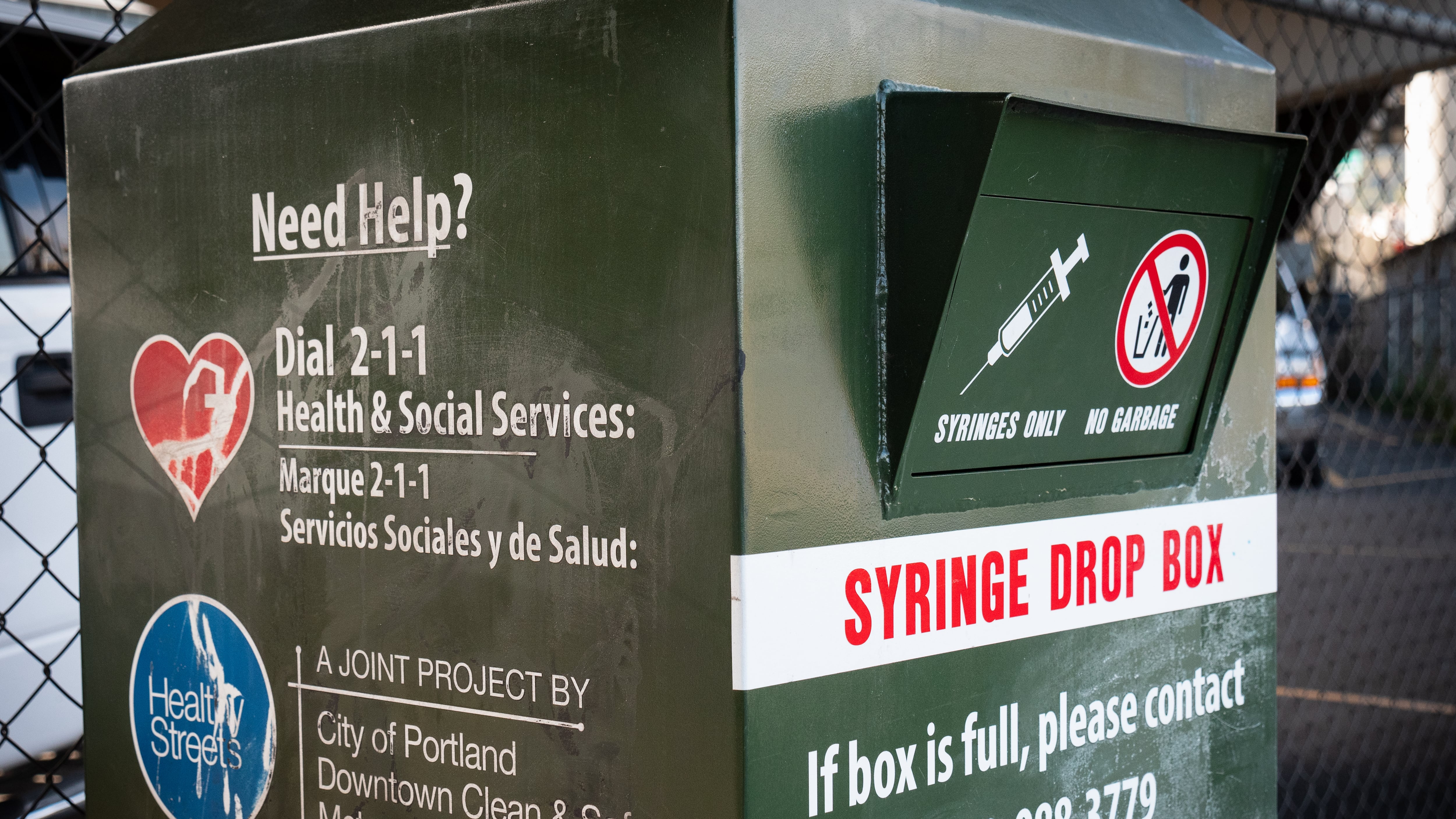Independent researchers evaluating Ballot Measure 110 today released the second report in a four-year study on the impacts of the 2020 measure that decriminalized the personal use of most drugs and reallocated more than $100 million a year in cannabis taxes to drug treatment.
For the new report, researchers from North Carolina-based RTI International interviewed 34 people in four representative Oregon counties. The new report includes information from all 34 but focuses primarily on interviews with 12 law enforcement officials, including police chiefs, sheriffs and street-level officers.
It will come as a surprise to few Oregonians that cops don’t like the measure.
“Law enforcement interviewees viewed BM 110 as a failure; they perceived it resulted in an erosion of their authority,” researchers led by sociologist Hope M. Smiley-McDonald wrote in the International Journal of Drug Policy. “They expressed frustration that they could not use drug possession as a ‘tool’ for investigations to pursue and build cases, establish probable cause, and impose what they believed necessary for social order.”
Although the researchers conducted their interviews last year, plenty of time had passed since Measure 110 went into effect.
“Many had not accepted drug decriminalization 18 months after BM 110 was enacted, as evidenced by their shared belief that Oregonians were ‘duped’ into voting for BM 110,” the researchers found.
The law enforcement officials—chosen from two urban and two rural counties—complained that without the authority to arrest drug users, they had no lever to push them toward treatment. “Ballot Measure 110 has actually undermined the treatment that we were doing and undermined the help that we were providing to people with addictions,” one officer said (neither the officers nor their agencies are named in the report).
Although dealing drugs remains a crime after Measure 110, officials told researchers that their ability to go after dealers is significantly diminished.
“Interviewees felt ‘handcuffed’ and ‘kicked in the gut’ following BM 110 and that BM 110 has been a ‘dagger in the heart’ of narcotics investigations,” the report says. “Regarding this latter point, interviewees noted that BM 110 has virtually eliminated the informant networks that they once cultivated and relied on to build larger cases.”
(The report also noted that people whose convictions preceded Measure 110 remain a fertile source of information for police because the terms of their post-conviction supervision can still require they remain drug-free. That gives parole officers the authority to send them back to jail or prison for drug use, a powerful incentive for them to cooperate with police.)
Officials also told researchers that they were unprepared for the all the policy changes incorporated in Measure 110.
“Although law enforcement personnel were aware that BM 110 was supposed to support substance use disorder treatment, absent was any understanding that BM 110 includes support for harm reduction services, housing assistance, and employee support.”
That’s not surprising, researchers found, as there was little preparation for the sweeping change in drug laws.
“BM 110 implementation also lacked any training and education for law enforcement officers,” the report says. “Departments simply received a simple question-and-answer guide from the state and officers were unclear about how best to handle situations involving drug possession and leading to additional frustration.”
One of the consequences of officers’ unfamiliarity with the new law: They have continued to make seizures that may no longer be appropriate.
“Police in all four counties indicated that they routinely seized drugs and drug paraphernalia, although citizens are legally allowed to retain designated amounts of each drug under BM 110,″ the report said. But the report said that may contribute to bad outcomes: “Emerging research showing that law enforcement drug seizures are linked to subsequent overdoses and deaths.”
As WW and other media have reported, the mechanism of getting people with substance use disorder into treatment—writing them a Class E violation ticket with a number to call to access treatment—has failed so far. Most people ignore the ticket, which carries a $100 fine, waivable if they call a Lines for Life hotline—but hardly anybody calls the hotline. Records show that officers in most jurisdictions don’t bother writing the tickets in the first place.
And, as also has been widely reported, the diversion of cannabis tax revenue to treatment lagged substantially behind decriminalization, which meant that even if people taking advantage of decriminalization wanted to access new treatment options, they didn’t yet exist.
“The timing of the decriminalization part of BM 110 meant that law enforcement officers were tasked with issuing Class E violations when the full promises of the law were more than a year away from being available,” the report noted.
One discordant note: The RTI researchers released a report last year that found no correlation between Measure 110 and calls for police service.
But the officers RTI interviewed didn’t agree with that finding: “Law enforcement interviewees generally felt that BM 110 has led to increases in criminal activity, particularly for property offenses, as well as the public’s growing discontentment with BM 110 because of the alleged crime increases.”
In coming months, RTI will revisit the issue of Measure 110 and crime, with an analysis of reported crimes before and after Measure 110, using surrounding states and comparable cities as a basis for assessment. The group’s research, which is funded by Arnold Ventures, could shape what other states do: at least nine considered some form of decriminalization in 2022.

